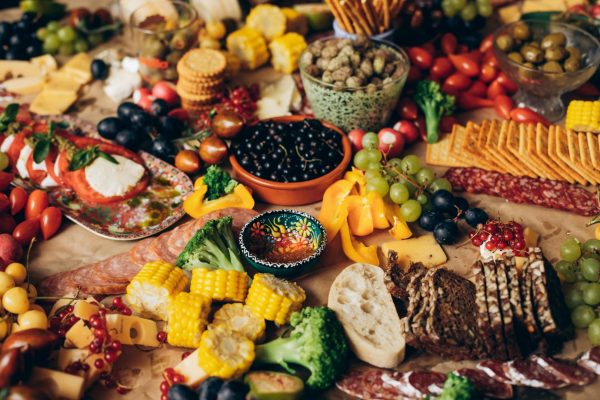We hear a lot of bad news about carbohydrates. So some people try to avoid carbohydrate foods altogether. They’re afraid of “carbotoxicity.” This is the idea that eating any type of carbohydrate will contribute to chronic disease.
Well, that’s a misconception.
It’s not about whether you eat carbs or not. It’s more about whether you’re eating the right carbs or the wrong carbs.
When you eat the right kind of carbs – the ones that feed your gut bacteria and help you maintain a healthy gut microbiome – you don’t need to worry. They aren’t in the least bit toxic.
The real problem comes with refined carbohydrates. These are found in foods that have been processed. Your sugars and sweeteners. Your refined grains, which are stripped of bran, fiber and other nutrients. Even products that claim they’re “made with whole grains” can contain refined grains.
These types of carbohydrates are loaded with additives and carry a high glycemic load. They flood your body with sugar, which triggers a large release of insulin. When the insulin kicks in, you end up with a sugar crash. The end result is that you end up getting hungry again very quickly, so you immediately start craving more processed carbs.
Over time, this can lead to weight gain, insulin resistance, diabetes, chronic inflammation and other health conditions.
This is a real problem, since high glycemic carbohydrates foods like breakfast cereals, rice, pasta, and other processed grain products regularly grace dinner tables across America. Sugary juices, sports drinks, teas and sodas often accompany those foods.
But that doesn’t mean there aren’t plenty of healthy, high-quality and non-toxic carbs that are good for you.
Slow and Steady Beats Fast and Furious Every Time
Instead of breaking carbohydrates into “good” and “bad” – or “right” and “wrong” – maybe it’s a better idea to think of them as “slow” or “fast.” Because that’s really what it’s all about.
Fast carbs, are the ones that cause the rapid increase in blood sugar followed by that big surge of insulin. This is not natural to your body, and it takes a toll. Your fat cells get locked up. You gain weight. Your gut bacteria get out of whack. You end up sick, tired and older than your years.
Slow carbs are the ones that are healthy. These are the ones found in nature. Your body absorbs the sugars in them much more slowly. So you don’t get that big insulin spike.
For example, some fruits that have a pretty high sugar content, are naturally high in fiber. That fiber slows down digestion of the sugar. This means you don’t end up getting those wildly high spikes of blood glucose and insulin.
These natural carbs also contain the soluble and insoluble fibers your gut microbiome needs to stay healthy. They act as prebiotics, which feed good bacteria in your gut to help them thrive. This, in turn, helps improve your gut health and bolsters your immune system.
How to Recognize Your Carbs
It’s easy to recognize a lot of fast carbs. Sugar, candy, cakes, pastries, chips, cookies, jams and syrups are all going to raise your blood sugar fast.
But some may not be identified as easily. So you’ll also want to watch out for them.
Most breads, breakfast cereals, dried fruit, French fries, rice cakes, Chinese foods and teriyaki dishes are horrible for you. They are going to quickly spike your blood sugar and cause a big insulin response.
Ultimately, you want to avoid these foods and stick with natural carbohydrates that release sugar slowly.
You’ve got your non-starchy vegetables – organic asparagus, avocado, broccoli, cabbage, cauliflower, leafy greens, mushrooms, tomatoes, summer squash, zucchini and more! Eat them raw or cook them up with a little olive oil and natural spices.
There are apples, apricots, berries, peaches, pears, plums and other low glycemic fruits.
And don’t forget your beans, nuts and seeds. They’re great for you.
However, there are a few natural foods you might want to eat in moderation due to a higher glycemic index and carbohydrate content. These include white potatoes, sweet potatoes, green peas, raisins, over-ripe bananas and pineapple.
Instead of rice, pasta or potatoes, use beans as a side dish. Trade in your chips for nuts, and your soft drinks for water or green tea. Choose whole fruits instead fruit juices. Replace high glycemic grain products with those that are friendlier to your health. I personally recommend sticking with gluten-free grains such as buckwheat, millet and quinoa.
These healthy carbohydrates are your body’s main source of energy. For your muscles, your brain and other organs; and for a healthy metabolism. They support your gut microbiome, improve digestion and help you feel full longer.
When it comes to carbs, slow and steady beats the fast and furious every time.
SOURCES:
Holscher HD. Dietary fiber and prebiotics and the gastrointestinal microbiota. Gut Microbes. 2017 Mar 4;8(2):172-184.
Vinke PC, El Aidy S, van Dijk G. The Role of Supplemental Complex Dietary Carbohydrates and Gut Microbiota in Promoting Cardiometabolic and Immunological Health in Obesity: Lessons from Healthy Non-Obese Individuals. Front Nutr. 2017;4:34.


